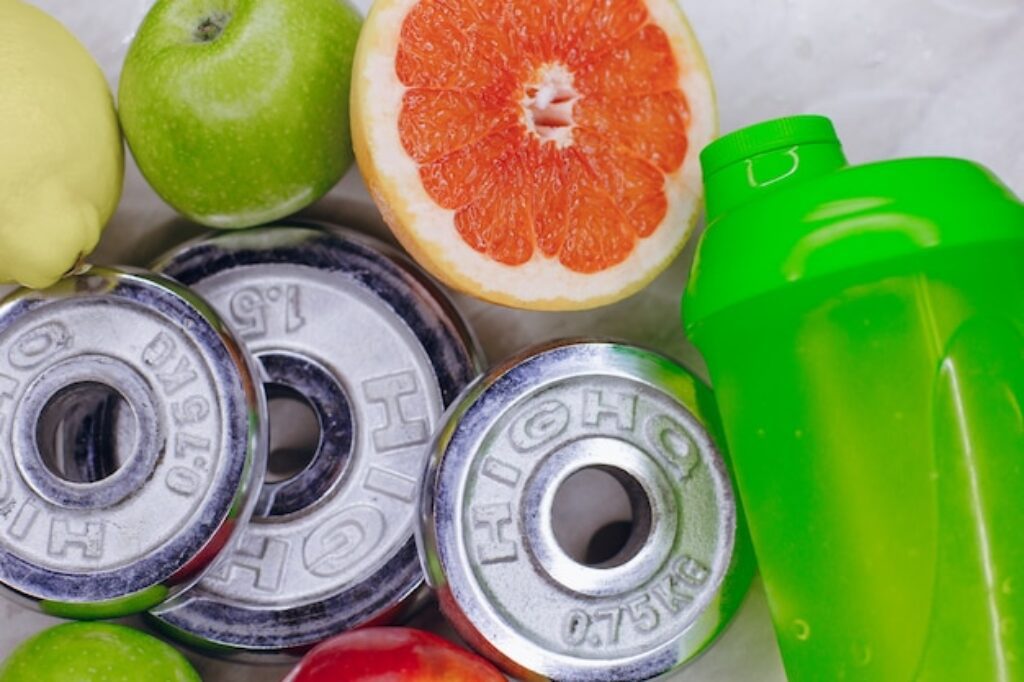As I embarked on my journey toward a healthier lifestyle, I quickly realized that the foundation of my progress hinged not just on rigorous workouts, but on a well-thought-out diet. It became evident that a healthy diet plan for men is not merely a recommendation—it’s a necessity. According to recent studies, nearly 70% of men struggle with obesity, a condition directly linked to a host of health issues, including heart disease and diabetes. These statistics sent shockwaves through my understanding of fitness and well-being.
Consider the transformative stories of countless men who embraced dietary changes and unlocked unprecedented levels of vitality and performance. For instance, a man who switched to a nutrient-dense diet not only shed excess pounds but also enhanced his energy levels, enabling him to crush his fitness goals. The synergy between nutrition and health cannot be overstated; it is the secret weapon that propels us toward our greatest potential.
So, join me as we explore the intricacies of crafting a healthy diet plan tailored specifically for men. Together, we’ll uncover strategies to boost performance, elevate our fitness levels, and embrace a holistic approach to well-being. This journey promises to be enlightening, empowering, and, above all, life-changing.
Why a Healthy Diet Is Essential for Men
Moreover, a nutritious diet plays a pivotal role in muscle growth and recovery. Adequate protein intake, coupled with essential vitamins and minerals, supports muscle repair and development. Men who prioritize their diet can experience increased muscle mass and strength, amplifying their physical capabilities and boosting confidence.
Finally, adhering to a healthy nutrition plan can vastly improve overall health by reducing the risk of chronic diseases like heart disease, diabetes, and obesity. A diet rich in antioxidants and healthy fats improves cardiovascular health and promotes optimal bodily function. This holistic approach to nutrition not only enhances physical appearance but also fosters mental clarity and emotional stability, making it essential for men striving for a fulfilling and healthy life.
Key Components of a Healthy Diet Plan for Men
A well-rounded and healthy diet plan for men must include essential nutrients that support overall wellness and fitness. Protein stands out as a critical component, playing a vital role in muscle repair and growth. Men should consider incorporating lean meats, fish, eggs, and plant-based proteins into their meals to meet their daily requirements.
Healthy fats are equally important, as they support hormone production and help with nutrient absorption. Sources like avocados, nuts, seeds, and olive oil provide Omega-3 and Omega-6 fatty acids, essential for cardiovascular health.
Carbohydrates are often misunderstood, but they are the body’s primary energy source. Whole grains, fruits, and vegetables offer complex carbs that help sustain energy levels, particularly for active individuals.
Additionally, vitamins and minerals play a crucial role in boosting immunity, enhancing mood, and fostering overall health. Men should focus on a variety of colorful fruits and vegetables to ensure they receive a broad spectrum of these micronutrients.
By balancing these key components, men can craft a robust healthy diet plan that not only fuels their fitness journey but also promotes long-term health benefits.
Sample Healthy Diet Plan for Men

Creating a healthy diet plan for men is essential for enhancing vitality, supporting fitness goals, and achieving overall well-being. Below is a one-week sample meal plan tailored to meet the nutritional needs of men while providing variety and satisfaction.
Day 1: Breakfast: Scrambled eggs with spinach and whole grain toast. Snack: Greek yogurt with honey. Lunch: Grilled chicken salad with mixed greens and vinaigrette. Snack: Almonds. Dinner: Baked salmon with quinoa and steamed broccoli.
Day 2: Breakfast: Oatmeal topped with banana and walnuts. Snack: Carrot sticks with hummus. Lunch: Turkey wrap with lettuce, tomato, and avocado. Snack: Cottage cheese with pineapple. Dinner: Stir-fried tofu with brown rice and vegetables.
Day 3: Breakfast: Smoothie with spinach, protein powder, and berries. Snack: Hard-boiled eggs. Lunch: Lentil soup with whole grain bread. Snack: Sliced apple with peanut butter. Dinner: Beef stir-fry with bell peppers served over whole grain noodles.
Day 4: Breakfast: Whole grain pancakes topped with fresh fruits. Snack: Mixed nuts. Lunch: Quinoa salad with chickpeas, cucumber, and feta. Snack: Celery sticks with cream cheese. Dinner: Grilled shrimp with asparagus and sweet potato.
Day 5: Breakfast: Yogurt parfait with granola and mixed berries. Snack: Cottage cheese with sliced peaches. Lunch: Spinach and feta stuffed chicken breast with roasted vegetables. Snack: Rice cakes. Dinner: Pork tenderloin with wild rice and green beans.
Day 6: Breakfast: Chia seed pudding with almond milk and honey. Snack: Dark chocolate squares. Lunch: Tuna salad on whole grain bread. Snack: Fresh fruit salad. Dinner: Grilled vegetable and quinoa-stuffed bell peppers.
Day 7: Breakfast: Avocado toast with poached eggs. Snack: Protein shake. Lunch: Mixed greens with salmon and avocado. Snack: Roasted chickpeas. Dinner: Baked chicken thighs with roasted carrots and cauliflower. This plan not only satisfies but also fuels robust health.
Common Mistakes in Men’s Dieting
Many men embark on dieting journeys with enthusiasm, only to be sidetracked by common mistakes that undermine their efforts. One frequent error is the misconception that all calories are created equal. It’s essential to focus not just on calorie counts but also on the nutritional quality of foods. Opting for whole, nutrient-dense foods over processed options can lead to better health outcomes and sustainable weight loss.
Another common pitfall is neglecting hydration. Men often forget that water plays a critical role in metabolism and appetite regulation. Staying adequately hydrated can significantly enhance energy levels, aid digestion, and help in managing cravings effectively.
Moreover, many diets fall short by excluding essential macronutrients, particularly fats. Healthy fats are crucial in a balanced diet, supporting hormone production and overall bodily functions. Incorporating sources like avocados, nuts, and olive oil can enrich your diet while fostering satiety.
Portion control is another misstep. Overestimating serving sizes often leads to excessive caloric intake, which can derail weight loss goals. Utilizing measuring tools or mindful eating practices can help ensure correct portions are consumed.
Finally, a lack of planning can cause men to make impulsive food choices, which are typically less healthy. Meal prepping and creating a shopping list can provide clarity and direction, helping to avoid unhealthy snacking. By recognizing these common errors and implementing strategies to counter them, men can maximize the benefits of their healthy diet plans.
FAQ: Common Questions About Dieting Mistakes
- What are the best sources of nutrient-dense foods?
- Nutrient-dense foods include vegetables, fruits, whole grains, lean proteins, and healthy fats like avocados and nuts. These options provide vitamins and minerals while helping to manage caloric intake.
- How much water should I drink daily for optimal hydration?
- A general guideline is to drink at least 8-10 cups (64-80 ounces) of water daily, but individual needs may vary based on factors like activity level, climate, and overall health.
- What are some healthy fats I can include in my diet?
- Healthy fats can be found in foods like olive oil, avocados, fatty fish (such as salmon), nuts, and seeds. These fats support overall health and can help keep you feeling full.
- What techniques can help with portion control?
- Techniques like using smaller plates, measuring food servings, and practicing mindful eating can assist in maintaining portion control and prevent overeating.
- How can I improve my meal planning to avoid unhealthy choices?
- Improving meal planning can involve creating a weekly menu, preparing meals in advance, and making a grocery list to ensure you have healthy options readily available while avoiding impulse buys.
Tips for Sticking to Your Diet Plan
Additionally, tracking your progress through a journal or app can provide motivation and keep your goals in sight. Document your meals, snacks, and feelings associated with your diet. This practice helps identify patterns, making it easier to adjust when necessary. Celebrate small victories along the way; they create a positive feedback loop that reinforces your commitment to a healthy diet plan for men.
Explore More Meal Prep Techniques for a Healthy Lifestyle
For additional tips and strategies on effective meal prepping, visit this resource: EatingWell – How to Meal Prep for the Week.
Elevate Your Health: Start Today!
In conclusion, embracing a healthy diet plan for men is not just a choice; it’s a transformative journey towards a vibrant and energetic life. By making simple yet impactful dietary changes, you’re not only enhancing your physical strength and energy levels but also empowering your overall health. Each nutritious meal is a building block towards achieving enhanced muscle growth and improved well-being.
Now is the time to prioritize your health and make a committed shift towards these healthier eating habits. Remember, the benefits of a balanced diet ripple through every aspect of your life, from the gym to your daily activities. So take that first step today—your path to vitality and a higher quality of life starts with the decisions you make at the table.





